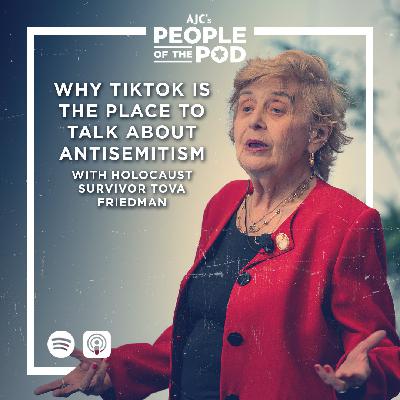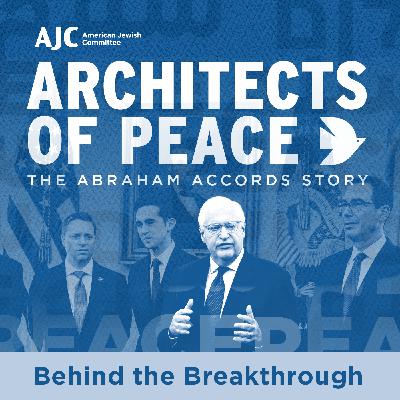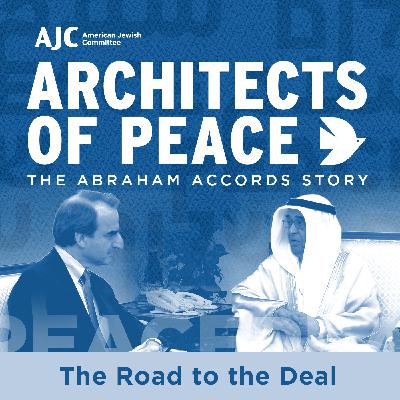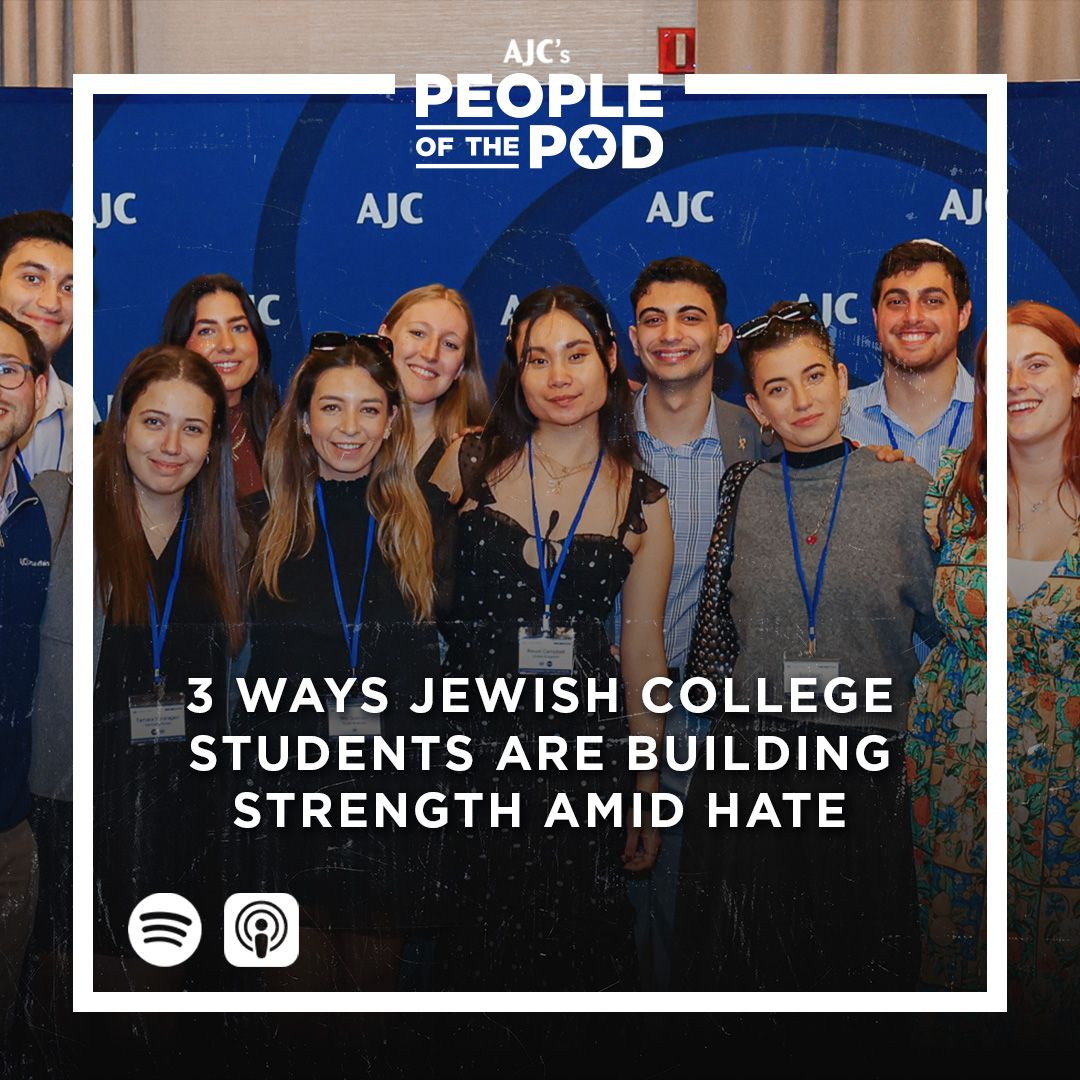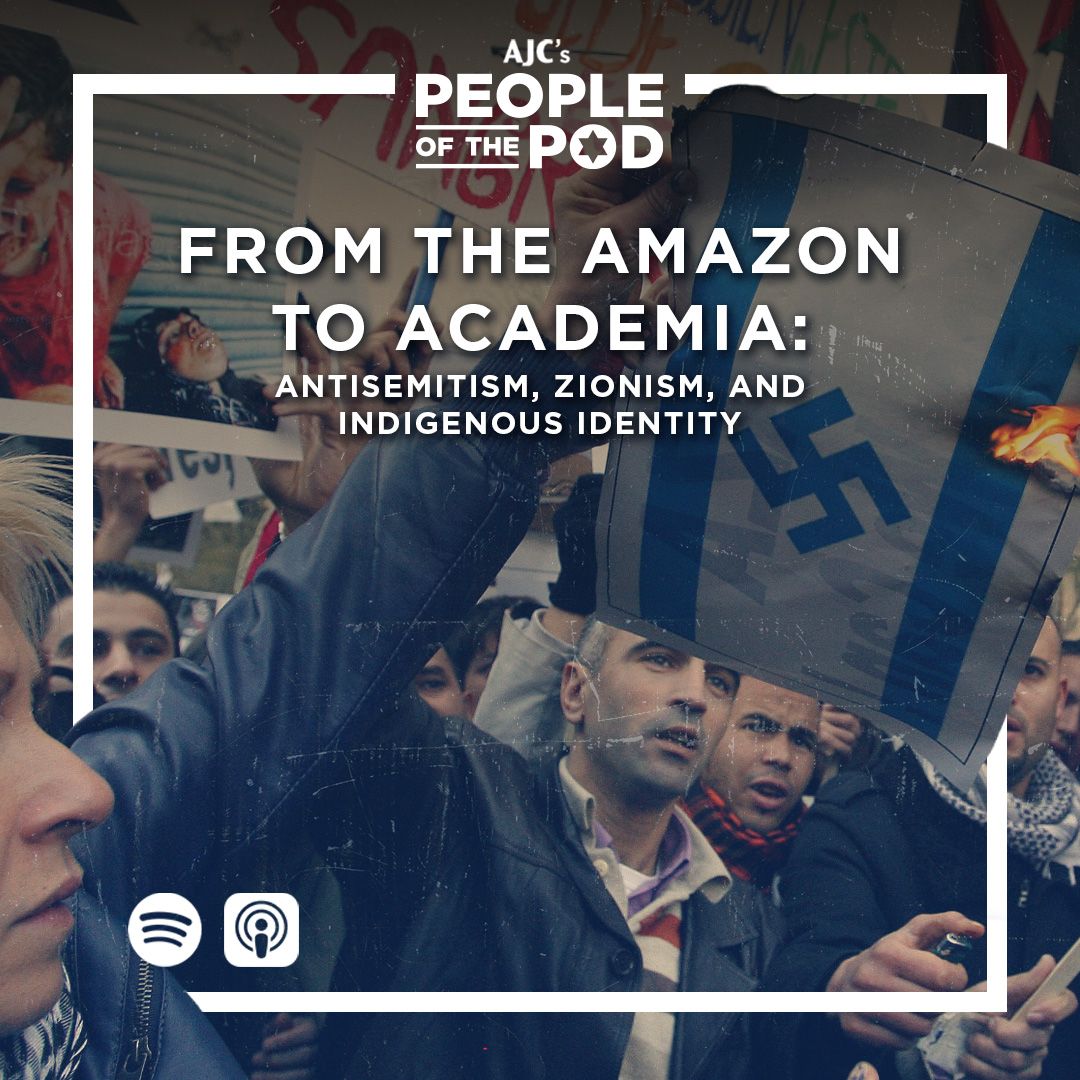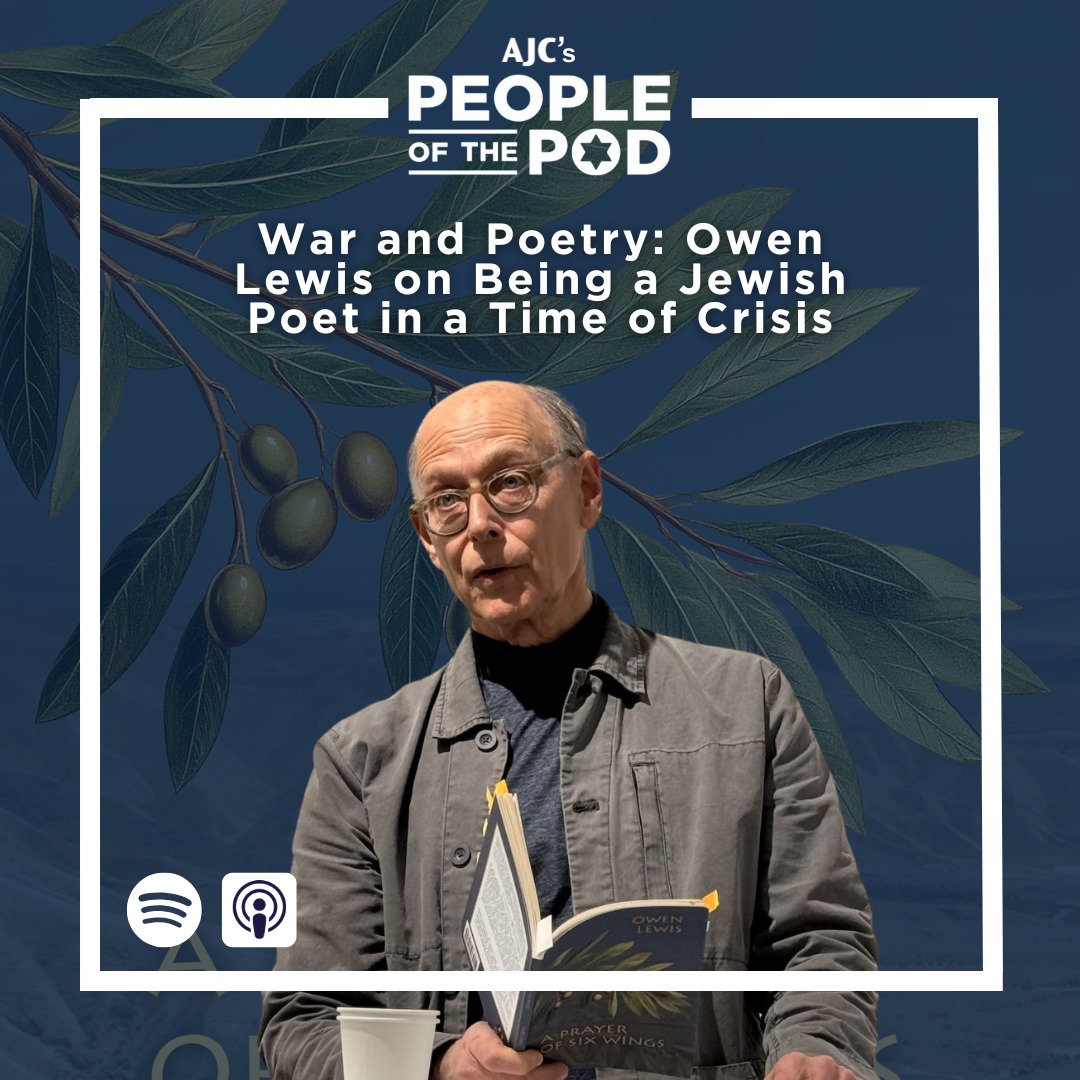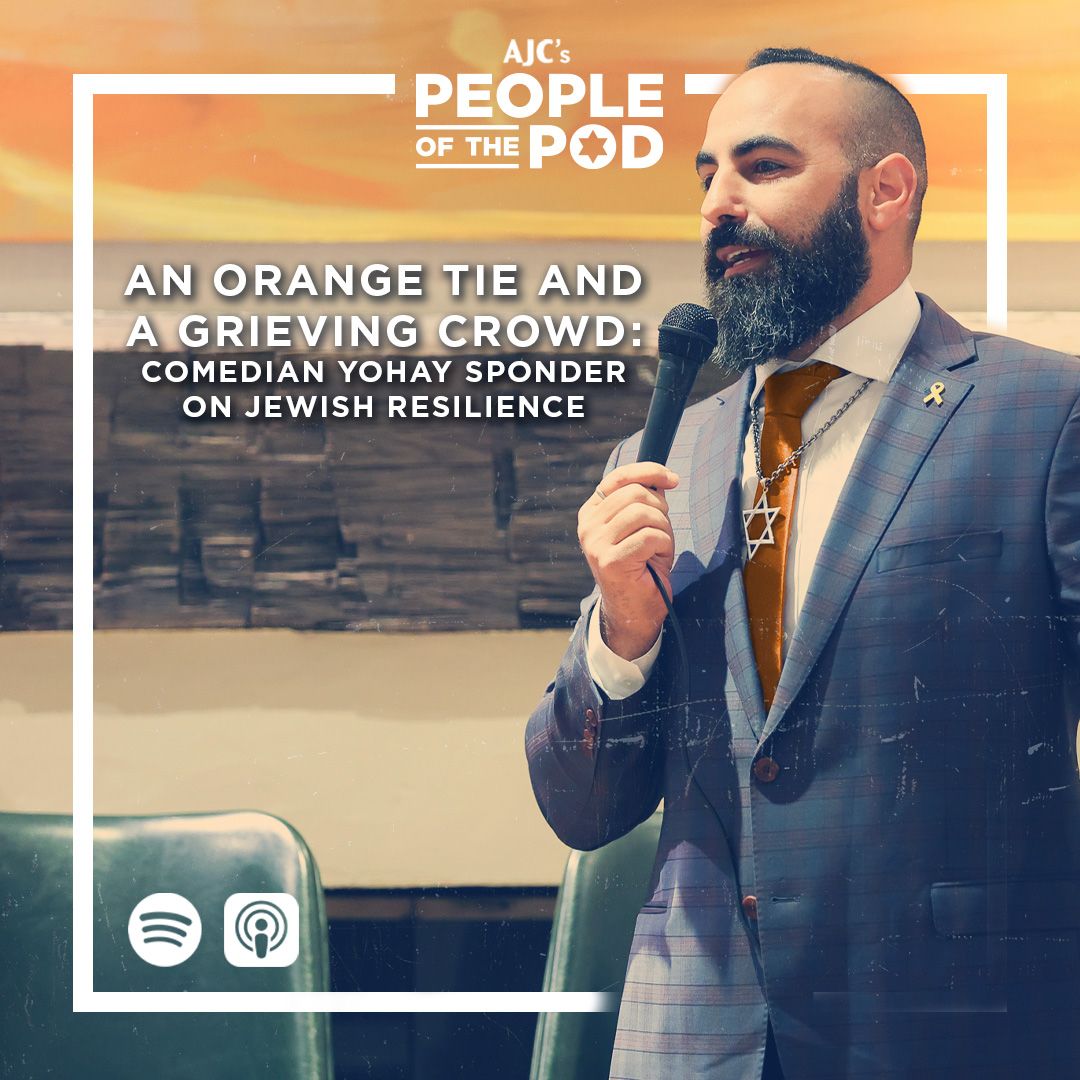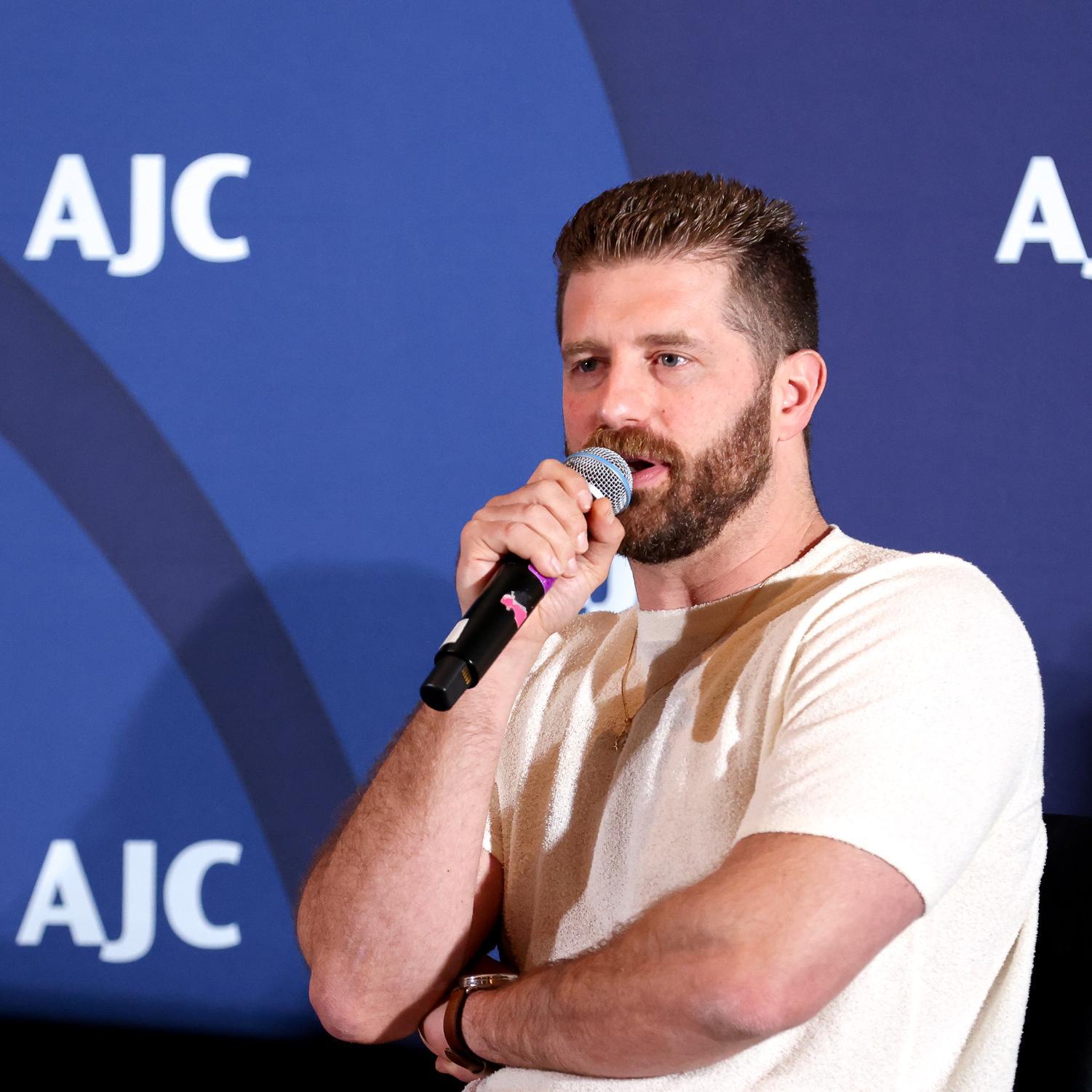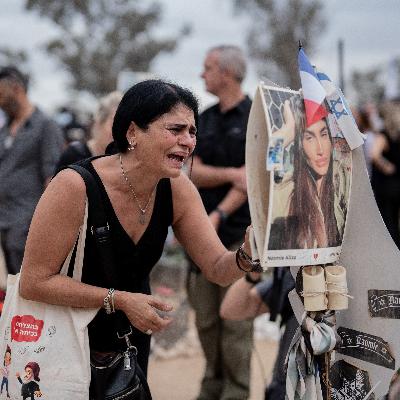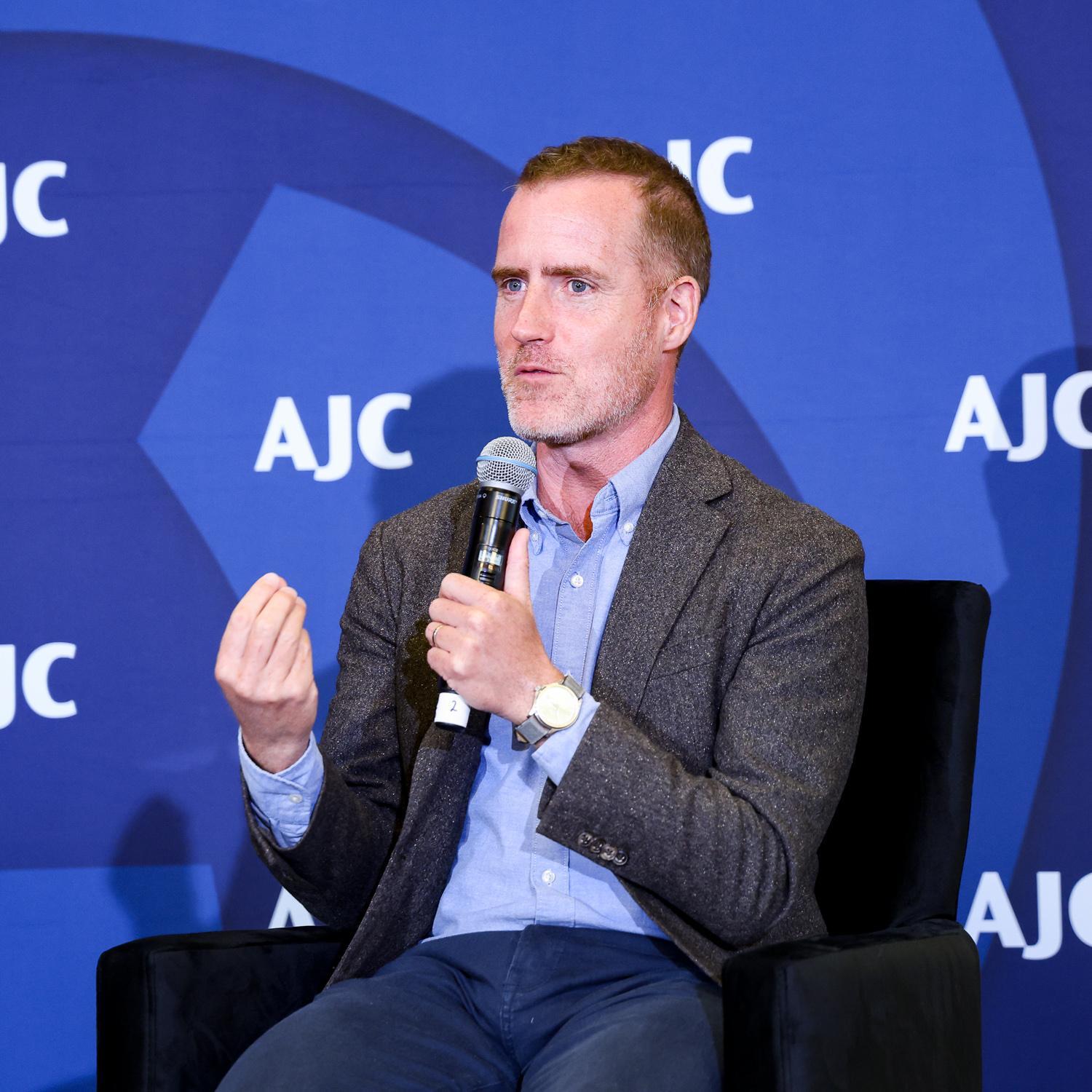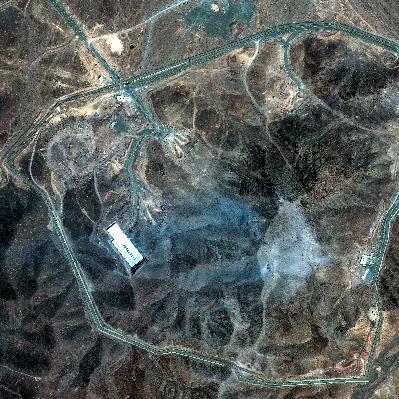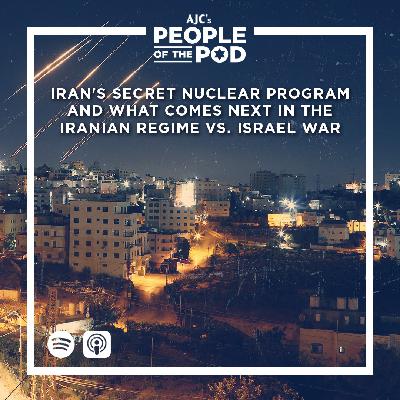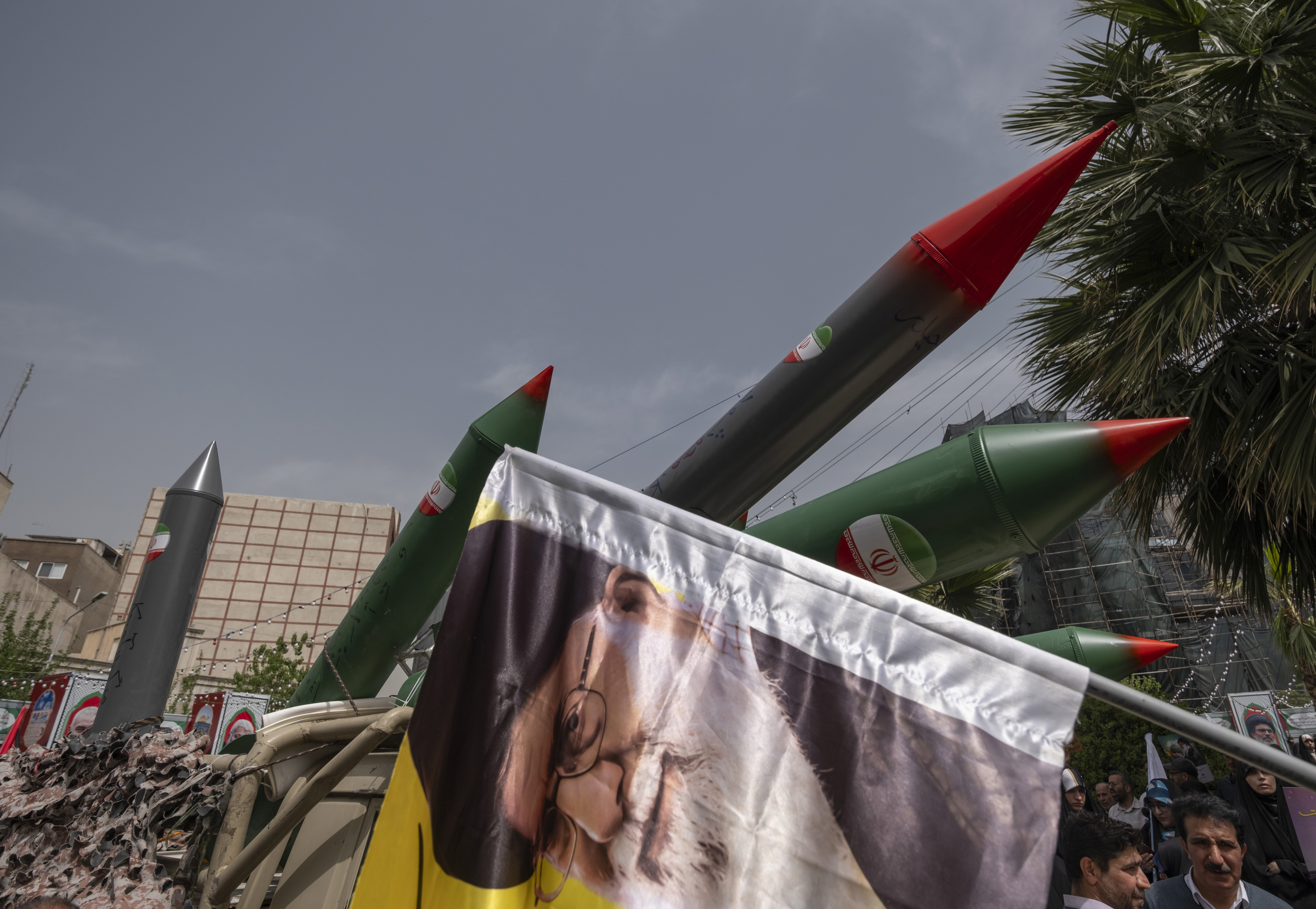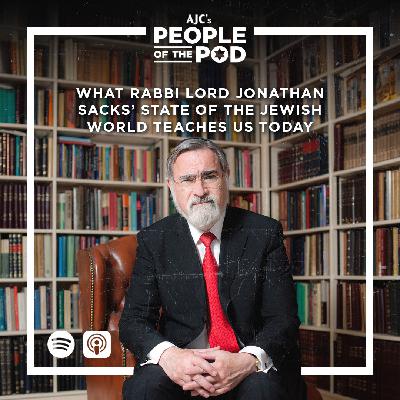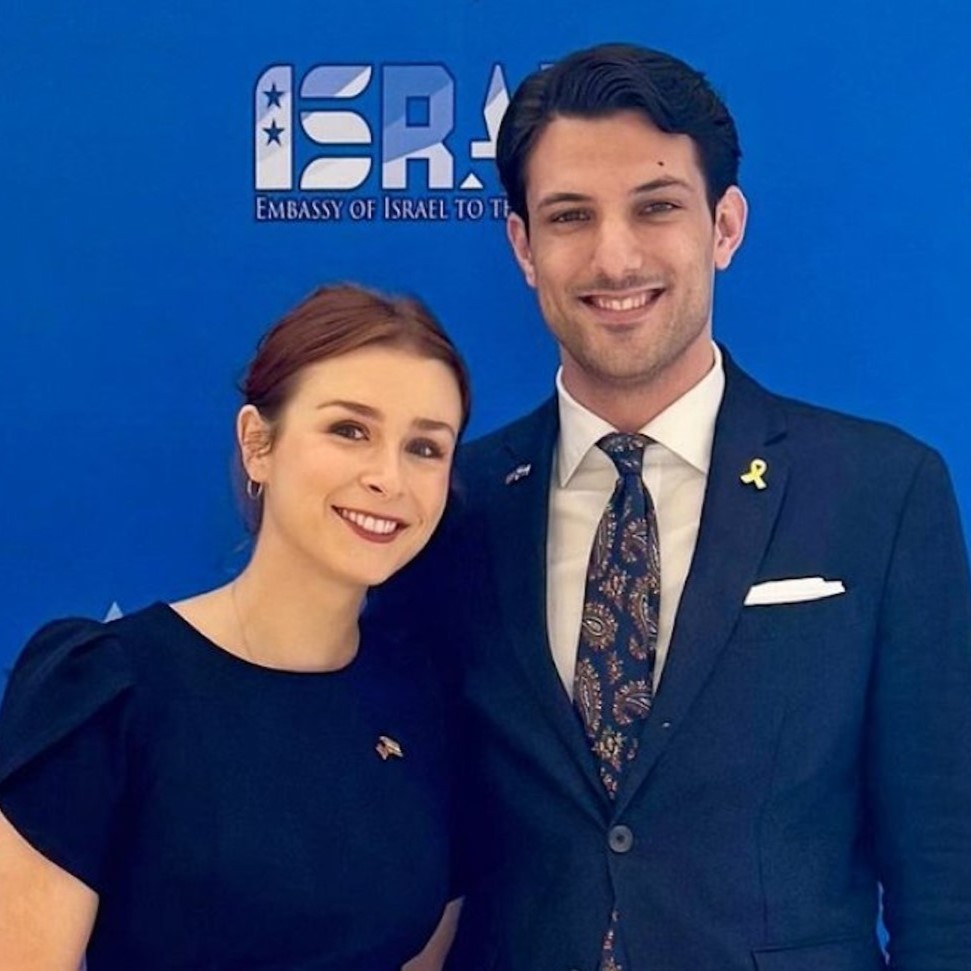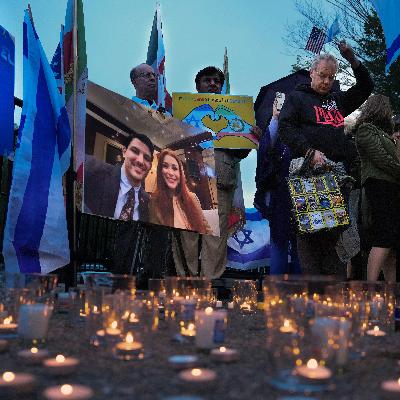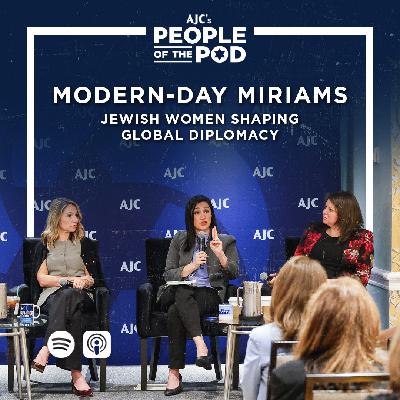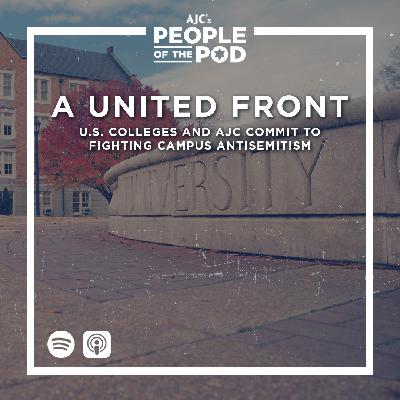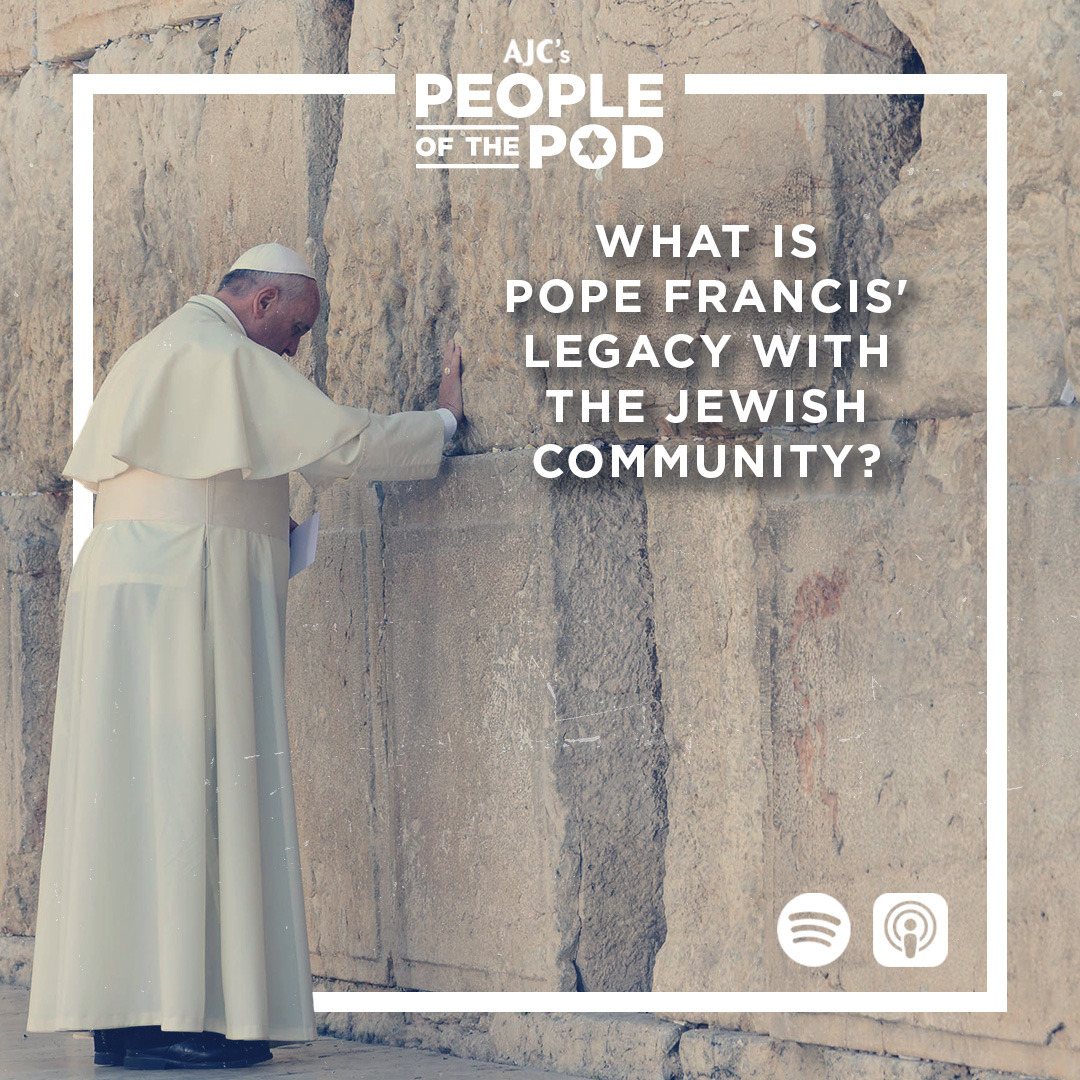Why TikTok is the Place to Talk about Antisemitism: With Holocaust Survivor Tova Friedman
Description
Tova Friedman was just six years old when she walked out of Auschwitz.
Now, 80 years later, Tova is devoted to speaking about her experiences as a child survivor of the Holocaust and being vocal about the threat of antisemitism. She knows how easily a society can transition from burning books to burning people, and she is determined to ensure that never happens again. Tova speaks to audiences worldwide–in person and on the social media platform TikTok, where she has amassed over half a million followers.
Listen to Tova’s harrowing, miraculous testimony of survival, as part of a live recording at the Weizmann National Museum of American Jewish History in Philadelphia, in partnership with AJC Philadelphia/Southern New Jersey.
Lisa Marlowe, director of the Holocaust Awareness Museum and Education Center (HAMEC), joined us to discuss the museum's mission to bring Holocaust survivors to schools, the importance of teaching history through eyewitness accounts, and the significance of preserving stories of righteous individuals like her Danish great-grandmother, who saved thousands of Jews during WWII.
*The views and opinions expressed by guests do not necessarily reflect the views or position of AJC.
Photo credit: Christopher Brown
Resources:
-About Tova Friedman and TovaTok
-Holocaust Awareness Museum and Education Center (HAMEC)
-AJC Philadelphia/Southern New Jersey
Listen – AJC Podcasts:
-The Forgotten Exodus: Untold stories of Jews who left or were driven from Arab nations and Iran
Follow People of the Pod on your favorite podcast app, and learn more at AJC.org/PeopleofthePod
You can reach us at: peopleofthepod@ajc.org
If you’ve appreciated this episode, please be sure to tell your friends, and rate and review us on Apple Podcasts or Spotify.
Transcript of Interview with Tova Friedman and Lise Marlowe:
Manya Brachear Pashman:
Yom HaShoah, Israel’s Holocaust Remembrance Day, begins on the evening of April 23. To mark this remembrance, our broadcast this week features our recent live event at the Weitzman National Museum of American Jewish History in Philadelphia. There I had a conversation with Lise Marlowe, of the Holocaust Awareness Museum and Education Center in suburban Philadelphia and author and Holocaust survivor Tova Friedman.
__
Thank you to all of you for being here today to participate in a live recording of People of the Pod, American Jewish Committee's weekly podcast about global affairs through a Jewish lens. I'm your host, Manya Brachear Pashman.
Down here on this end is Lise Marlowe, our partner and organizer of this wonderful event. She is the program and Outreach Director of the Holocaust awareness Museum and Education Center, otherwise known as HAMC in Elkins Park, Pennsylvania, which is just outside here in Philadelphia. She is also a long time teacher who has come up with some quite innovative ways to teach Holocaust history to middle school students. But before we begin and get to all of that, I do want to turn to Lisa for a few minutes. If you could just tell us a little bit about HAMC. What is it? Because we are in a different museum venue now.
Lise Marlowe:
Thank you Manya, and thank you everyone for being here today. So HAMC is America's first Holocaust Museum, which started in 1961 by Holocaust survivor named Jacob Riz, who lost 83 family members to the Nazis. Our Museum's mission is to bring Holocaust survivors to schools and organizations. We believe it's important to give students the opportunity to learn history through an eyewitness. When we host a school program, we tell students that they are the last generation to meet a survivor, and once they hear a survivor's story, it becomes their story to tell. It also becomes their responsibility to speak up and stand up to the Holocaust deniers of the world and to say, I know you're lying because I met a survivor. It's not easy for our survivors to tell their story, but they want to honor the family they lost. And to make sure students know what happened so history hopefully doesn't repeat itself.
Hearing about the rise of antisemitism, seeing hate towards other groups, can bring trauma to our survivors, but our survivors teach students that there are things we can do to stand up to hate. We can remember that words matter, kindness matters, that we can support and help each other when bad things happen. The Holocaust did not begin with concentration camps. It began with words.
Our museum brings hundreds of programs all over the world, so please reach out to us at HAMC.org. Because we believe education is stronger than hate. We find that students are inspired by the messages our survivors tell them, which is to not hate others. Even though they lost everything. Their families, their property, their identity, their childhood, they teach students that hate can only destroy yourself.
Manya Brachear Pashman:
Thank you so much, Lise. I met some of Lise's former students who are here in the audience today. You have some really remarkable ways of teaching Holocaust history so that it sticks. I would like to get into that a little bit later. And you also have your own family story to share, and we'll learn more about that later, as she is one of our two guests on today's podcast.
You see, there are three pieces to our podcast today, including the traditional format of a conversation with our guests, which will come later, and then your opportunity to ask questions. But to really comprehend what we discuss, you must first hear the powerful story that our guest of honor, the woman next to me, Tova Friedman, one of the youngest people to emerge from Auschwitz, the Nazi's concentration camp and extermination camp in occupied Poland. You must hear her story first.
Tova has worked tirelessly to share her story in every format possible, to reach the widest audience. In addition to telling her story in person, at venues such as this, she worked with a journalist to produce an accurate and comprehensive memoir, and next month, a young adult version of that memoir will be released.
She's worked with her grandson, Aaron, a student at Washington University, to share portions of her story on Tiktok on a channel called TovaTok, that has about 522,000 followers, and she is here today to reach our podcast listeners. And you. After her presentation, Tova will have a seat once again, and we'll continue the conversation. But right now, it is my honor to turn the mic over to Tova Friedman:.
Tova Friedman:
Thank you. I have no notes and I can't sit because I'm a walker. You know, I think better when I walk. I think better on my feet. Let me tell you, a few months ago, I was in Poland. I was invited as a speaker to the 80th commemoration of Auschwitz liberation.
Five years ago, I was there also–75th. And there were 120 Holocaust survivors there with their families and their friends from Auschwitz. This time there were 17 [survivors], and we'll have no more commemoration. We're done. People, the lucky people, are dying from old age. You know, they're, or they’re Florida, or they're gone, okay, they're not available.
So what's scary is that many young people will not meet a survivor, and they will be told in colleges and high schools, probably it never happened. It's an exaggeration. You know, the Jews. They want everybody to be sorry for them. That will happen. And that's been happening here and there to my grandchildren.
Right now, I've got eight grandchildren, but two are in colleges, and one is in Cornell. And I got the saddest phone call on Earth. To me it’s sad. He got a beautiful Jewish star when we went to Israel. He called me to ask me if he should wear it inside, hidden, or if he should wear it outside. That's so symbolic.
And I said to him, do you want to be a visible Jew, or do you want to be a hidden Jew? Do what you want. I will not criticize you. I know that life is changed from when I went to college. America is different, and I'm just so upset and unhappy that you, at age 18-19, have to go through that. One of my grandkids had to leave the dormitory because of the absolute terrible antisemitism. She is in McGill in Canada, and she has to live by herself in an apartment because even her Jewish friends stopped talking to her.
So what kind of a world are we living in? Extraordinarily scary, as far as I'm concerned. That's why I talk. You can hear my voice. I talk as much as I can for a number of reasons. First, I talk in order for those people who were murdered, million and a half children, some of the faces I still remember, and a total 6 million Jews, they cannot be forgotten. They cannot be forgotten.
This is such a wonderful place here that I hear you have classes and you have survivors talking to kids. You take them to schools. I think it's fabulous, but you got to do it fast, because there's just not many of us going to be here for a long time. So one thing is memory.
The other reaso

